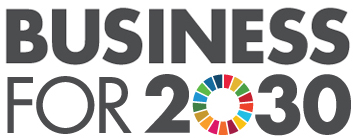Dow Partnership with Habitat for Humanity
Description
Dow provides staff financial, volunteers, product contributions, and home sponsorship.
Dow and Habitat for Humanity work in partnership to identify needs (i.e. building supplies, monetary contributions, etc.) and deliver safe & affordable homes.
SDGS & Targets
Goal 11
Make cities and human settlements inclusive, safe, resilient and sustainable
11.1
By 2030, ensure access for all to adequate, safe and affordable housing and basic services and upgrade slums
11.1.1
Proportion of urban population living in slums, informal settlements or inadequate housing
11.2
11.2.1
Proportion of population that has convenient access to public transport, by sex, age and persons with disabilities
11.3
11.3.1
Ratio of land consumption rate to population growth rate
11.3.2
Proportion of cities with a direct participation structure of civil society in urban planning and management that operate regularly and democratically
11.4
Strengthen efforts to protect and safeguard the world’s cultural and natural heritage
11.4.1
Total per capita expenditure on the preservation, protection and conservation of all cultural and natural heritage, by source of funding (public, private), type of heritage (cultural, natural) and level of government (national, regional, and local/municipal)
11.5
By 2030, significantly reduce the number of deaths and the number of people affected and substantially decrease the direct economic losses relative to global gross domestic product caused by disasters, including water-related disasters, with a focus on protecting the poor and people in vulnerable situations
11.5.1
Number of deaths, missing persons and directly affected persons attributed to disasters per 100,000 population
11.5.2
Direct economic loss attributed to disasters in relation to global domestic product (GDP)
11.5.3
(a) Damage to critical infrastructure and (b) number of disruptions to basic services, attributed to disasters
11.6
By 2030, reduce the adverse per capita environmental impact of cities, including by paying special attention to air quality and municipal and other waste management
11.6.1
Proportion of municipal solid waste collected and managed in controlled facilities out of total municipal waste generated, by cities
11.6.2
Annual mean levels of fine particulate matter (e.g. PM2.5 and PM10) in cities (population weighted)
11.7
11.7.1
Average share of the built-up area of cities that is open space for public use for all, by sex, age and persons with disabilities
11.7.2
Proportion of persons victim of non-sexual or sexual harassment, by sex, age, disability status and place of occurrence, in the previous 12 months
11.a
Support positive economic, social and environmental links between urban, peri-urban and rural areas by strengthening national and regional development planning
11.a.1
Number of countries that have national urban policies or regional development plans that (a) respond to population dynamics; (b) ensure balanced territorial development; and (c) increase local fiscal space
11.b
By 2020, substantially increase the number of cities and human settlements adopting and implementing integrated policies and plans towards inclusion, resource efficiency, mitigation and adaptation to climate change, resilience to disasters, and develop and implement, in line with the Sendai Framework for Disaster Risk Reduction 2015-2030, holistic disaster risk management at all levels
11.b.1
Number of countries that adopt and implement national disaster risk reduction strategies in line with the Sendai Framework for Disaster Risk Reduction 2015–2030
11.b.2
Proportion of local governments that adopt and implement local disaster risk reduction strategies in line with national disaster risk reduction strategies
11.c
Support least developed countries, including through financial and technical assistance, in building sustainable and resilient buildings utilizing local materials
SDG 14 targets covered
| Name | Description |
|---|
Deliverables & Timeline
Resources mobilized
Partnership Progress
Feedback
Action Network


Timeline
Entity
SDGs
Geographical coverage
More information
Countries

















Contact Information
Lisa Schroeter, Communications Lead
